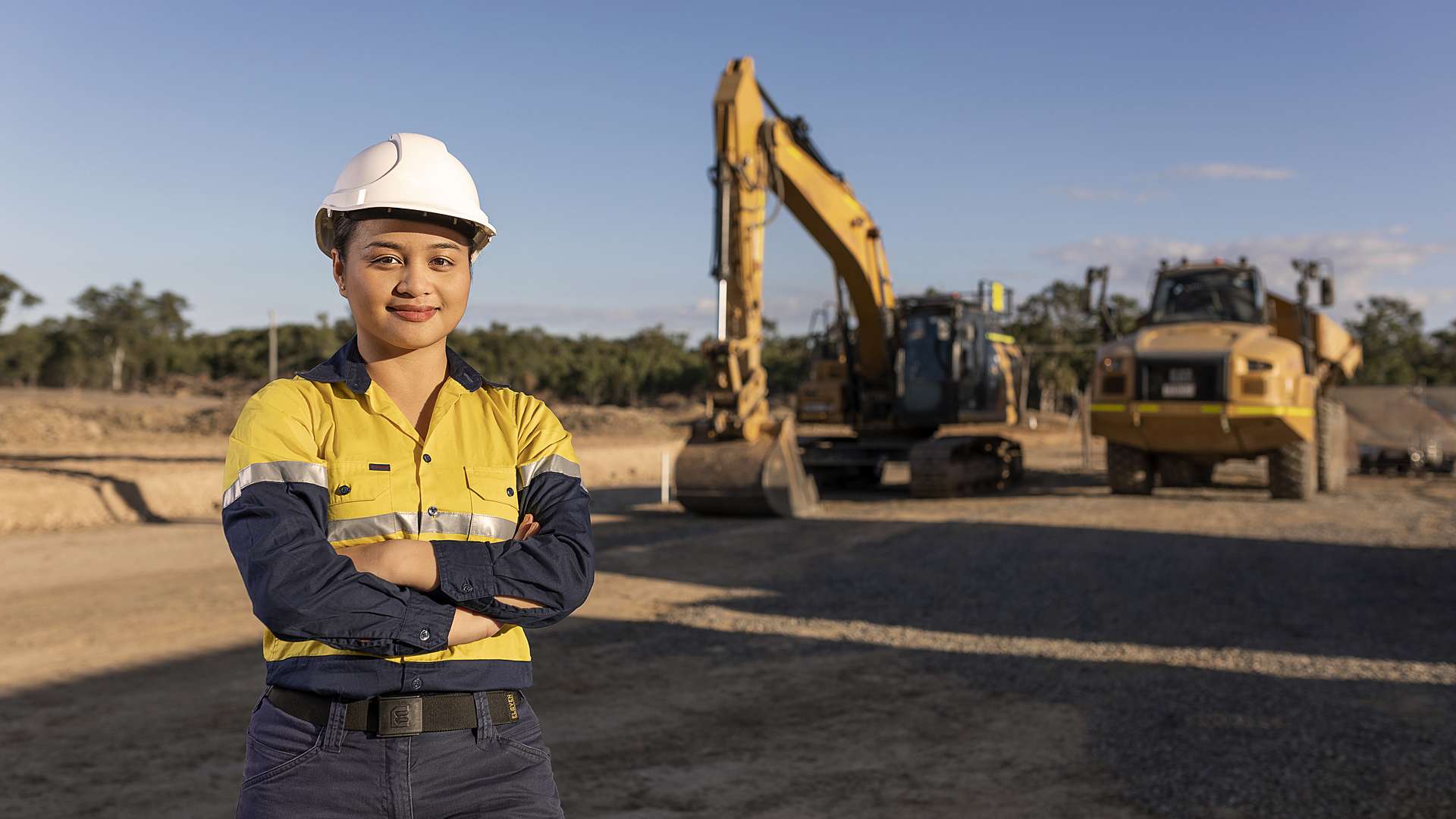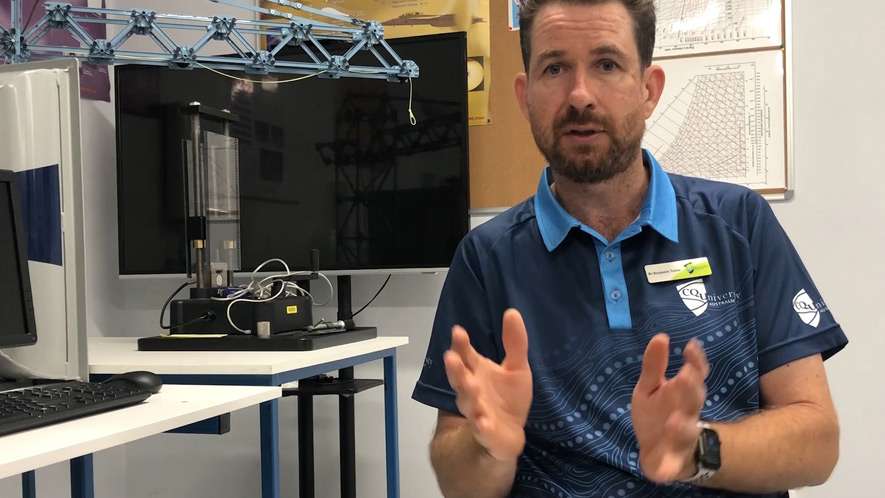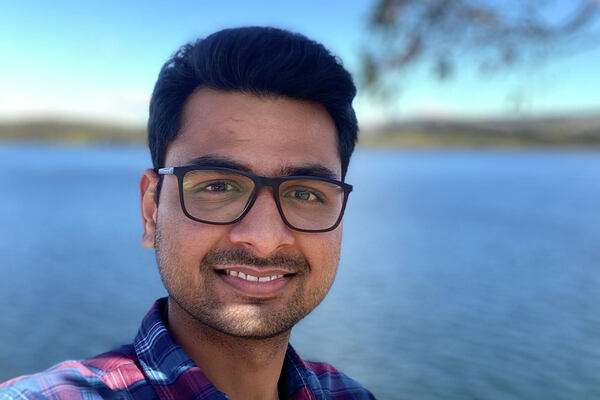
Study the Associate Degree of Engineering and develop the skills and qualifications needed to become an engineering associate. Engineering associates combine a sound engineering understanding with modern technology to apply and adapt sustainable engineering practices for communities, society and the environment in general. Engineering associates often work to support professional engineers or engineering technologists in a team environment.
The Associate Degree of Engineering allows you to develop the skills required to become an engineering associate and gain knowledge of engineering principles relevant to the testing, inspection, drawing, adaptation, commissioning, management or operation of on-site equipment, plant and systems. There is the opportunity to tailor your studies to your areas of interest by selecting from majors in civil, electrical, mechanical or mining engineering or engineering geology. The Associate Degree of Engineering course is based on the project-based learning philosophy which offers the opportunity to learn in context. This approach is designed to produce work-ready graduates with industry-relevant skills.


I undertook a 12-week internship during my course, which gave me a lot of confidence to improve my performance and professional skills. I had an opportunity to work on various civil engineering projects. It has helped me to utilise my knowledge in real-world applications.
Yogesh Goyal
Master of Engineering (Civil) | India
As an Associate Degree of Engineering graduate, you will enjoy various challenging career options across multiple industries and government sectors. As an engineering associate, you will apply your knowledge of engineering principles to the testing, inspection, adaptation, commissioning, management or operation of on-site equipment, plant and systems. You may prepare drawings or specifications for others to use in manufacturing or construction. Engineering associates, having specialised in civil, mechanical or electrical disciplines, find employment in national and international public and private industry sectors, including the energy, transportation, manufacturing, process, construction, mining and education industries.
The course structure and available locations can change depending on when you want to study. You can choose the intake that best suits you in the drop-down menu below.
You must complete 15 units (96 credits):
The units you'll study are listed below. Click on a unit to learn more.
Students are required to complete 240 hours of Engineering Professional Practice prior to graduation. Once the students have completed the professional practice requirements, they must enrol in this unit and provide evidence of how they have attained the professional engineering practice exposure required by Engineers Australia.
The CC02 Associate Degree of Engineering Civil, Electrical, Mechanical and Mining majors are fully accredited by Engineers Australia.
Graduates are recognised as engineering associates and are eligible for Graduate membership with EA.
The Engineering Geology major is accredited by the Australian Institute of Mining and Metallurgy (AusIMM).
The CC02 Associate Degree of Engineering Civil, Electrical, Mechanical and Mining majors are fully accredited by Engineers Australia.
Graduates are recognised as engineering associates and are eligible for Graduate membership with EA.
The Engineering Geology major is accredited by the Australian Institute of Mining and Metallurgy (AusIMM).
The CC02 Associate Degree of Engineering Civil, Electrical, Mechanical and Mining majors are fully accredited by Engineers Australia.
Graduates are recognised as engineering associates and are eligible for Graduate membership with EA.
The Engineering Geology major is accredited by the Australian Institute of Mining and Metallurgy (AusIMM).
If you have already completed a study relevant to the course you have enrolled in, you may be eligible for credit transfer.
For your application to be considered, you must meet the following entry requirements.
While not needed to apply, you'll need to meet the following requirements throughout your studies.
This is an approximate cost of enrolling in this course, shown in Australian dollars (A$), for one academic year and is based on a full-time study load (8 units over 2 terms).
Your actual fees may vary, depending on the units that you select to study and your study load. Fees are reviewed each year and are subject to change.
Please note there may be other costs involved apart from your tuition fee.
We offer a range of scholarships to support international students. Our merit scholarships are awarded to high-achieving students based on academic excellence and provide course fee reductions ranging from 15% to 25%.
We also have region-specific scholarships for students from selected regions, offering a 25% reduction in course fees.
You don’t need to submit a separate application for scholarships funded by the University. We automatically assess all eligible students for the best available scholarship when you apply for your course.
Our easy to use online application system for international students will guide you through the process of applying for a course at CQUniversity Australia.
CQUniversity Australia is a trading name of Central Queensland University
ABN: 39 181 103 288
RTO Code: 40939
CRICOS: 00219C
TEQSA: PRV12073